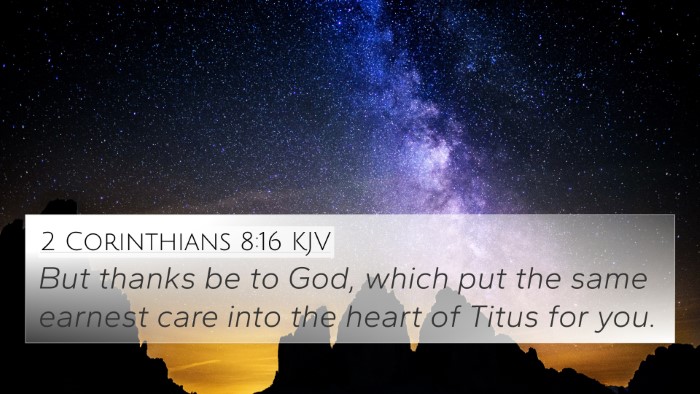Understanding Proverbs 16:1:
Proverbs 16:1 states, "The plans of the heart belong to man, but the answer of the tongue is from the Lord." This verse highlights the distinction between human intent and divine influence, emphasizing that while individuals may make plans, the ultimate direction and outcomes are governed by God’s wisdom and sovereignty.
Key Themes:
- Human Responsibility: The verse begins by acknowledging that humans are capable of forming their own plans and desires.
- Divine Sovereignty: God’s role as the ultimate authority over speech and decision-making indicates that while humans plan, true understanding and direction come from Him.
- Trust in God: The implication is a call to submit our plans to God, allowing Him to guide our speech and outcomes.
Insights from Commentaries:
Matthew Henry reflects that this verse indicates a contrast between the plans of the heart (the thoughts, desires, and intentions of man) and the answers that come from God. He underscores the importance of recognizing God’s providence, suggesting that while we might plan, our success depends largely on God’s favor.
Albert Barnes comments that the ‘heart’ implies all people’s aspirations and decisions; yet even when they articulate their thoughts ("the answer of the tongue"), it is ultimately God's will that prevails. He emphasizes the idea that divine insight surpasses human understanding and that believers should rely on God's guidance in their speech and actions.
Adam Clarke elaborates on the Hebrew meaning, suggesting that the plans formed by people may often be misguided, but God’s responses to their verbal expressions reflect His wisdom. Clarke encourages readers to align their intentions with God’s will to be truly effective in their endeavors.
Bible Cross-References:
- Proverbs 3:5-6: "Trust in the Lord with all your heart and lean not on your own understanding; in all your ways acknowledge Him, and He will make your paths straight."
- Jeremiah 10:23: "I know, O Lord, that a man’s way is not in himself; it is not in a man who walks to direct his steps."
- James 4:13-15: "Come now, you who say, ‘Today or tomorrow we will go into such and such a town and spend a year there and trade and make a profit’—yet you do not know what tomorrow will bring."
- Psalm 37:5: "Commit your way to the Lord; trust in Him, and He will act."
- Proverbs 19:21: "Many are the plans in the mind of a man, but it is the purpose of the Lord that will stand."
- Romans 8:28: "And we know that for those who love God all things work together for good, for those who are called according to His purpose."
- Isaiah 55:8-9: "For my thoughts are not your thoughts, neither are your ways my ways, declares the Lord."
- Proverbs 20:24: "A man’s steps are from the Lord; how then can man understand his way?"
- Hebrews 6:17: "So when God desired to show more convincingly to the heirs of the promise the unchangeable character of His purpose, He guaranteed it with an oath."
- 1 Corinthians 3:19: "For the wisdom of this world is folly with God. For it is written, ‘He catches the wise in their craftiness.’"
Applying Cross-Referencing Tools:
To better understand the connections between Bible verses, tools for Bible cross-referencing can prove invaluable. The use of a Bible concordance can assist in locating similar themes or sentiments expressed in different scriptures. A cross-reference Bible study system allows for in-depth exploration of how verses like Proverbs 16:1 relate to other passages, providing a comprehensive analysis.
The Importance of Biblical Themes:
Exploring thematic Bible verse connections can unveil deeper insights into God’s character and His plan for humanity. For example, examining the themes of divine guidance in Proverbs alongside the teachings of Jesus in the New Testament offers a broader perspective on trust and reliance on God’s will.
Conclusion:
In summary, Proverbs 16:1 encourages believers to recognize the interplay between human intention and divine guidance. By cross-referencing this verse with others, individuals can deepen their understanding of God's sovereignty and the importance of aligning their plans with His purpose. Through this understanding, one can cultivate a faith that trusts in God's plan while actively participating in life’s journey. Exploring links between different scriptures aids in comprehending the fullness of God’s message.























